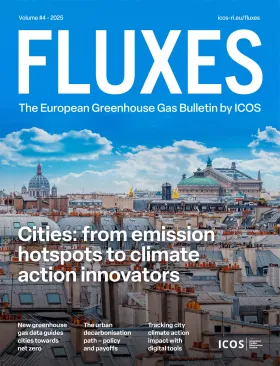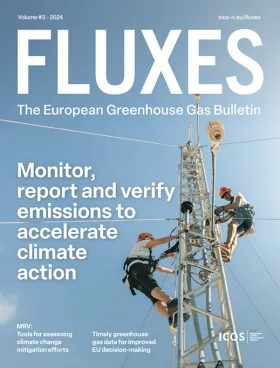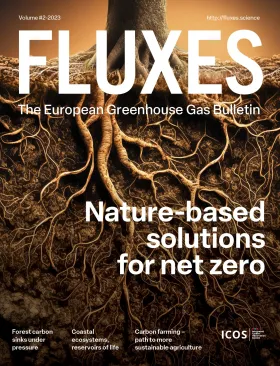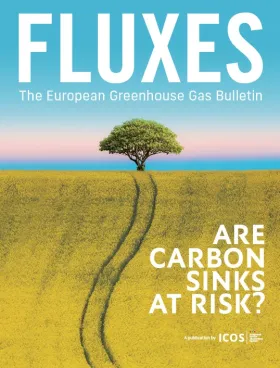Volume 1
This inaugural edition of FLUXES explores how long-term observation data can answer questions such as:
Has there been an acceleration of the increase of greenhouse gases in the atmosphere?’
Has extreme weather in Europe influenced the carbon cycle of ecosystems and, consequently, changed their ability to store carbon?’
The observational data produced by ICOS can support policy-makers in various ways. Robust data can help to identify whether and how strong a carbon sink is. Long-term and consistent data can produce reliable estimates of the sizes of the carbon pools and inform how these pools respond to environmental and management changes as the world transitions towards carbon neutrality.
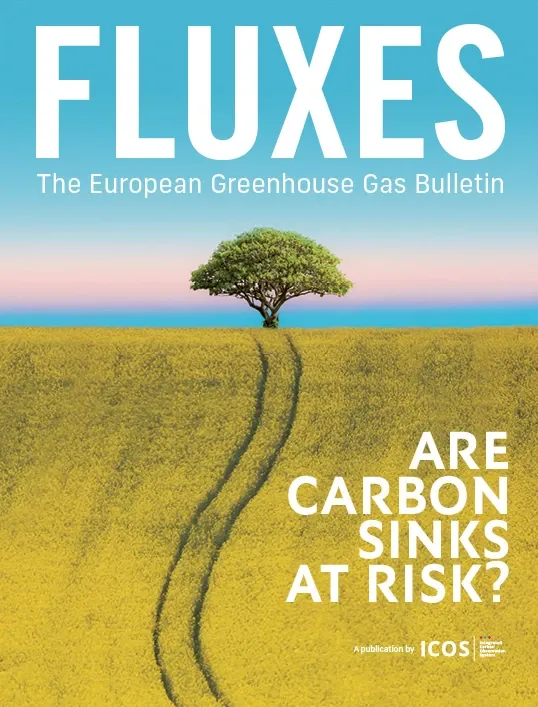
All FLUXES volumes
Cities: from emission hotspots to climate action innovators
Volume 4, 2025
MRV: A critical tool for tracking emissions and accelerating climate action
Volume 3, 2024
Nature-based solutions for net zero
Volume 2, 2023
FLUXES vol 2 highlights the potential and limitations of nature-based solutions for carbon removals from a scientific perspective. FLUXES is an annual scientific publication addressing climate change related issues supporting European policy-makers.
Are carbon sinks at risk?
Volume 1, 2022
This inaugural edition of FLUXES explores how long-term observation data can answer questions such as:
Has there been an acceleration of the increase of greenhouse gases in the atmosphere?’
Has extreme weather in Europe influenced the carbon cycle of ecosystems and, consequently, changed their ability to store carbon?’



